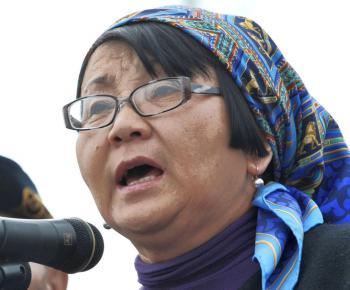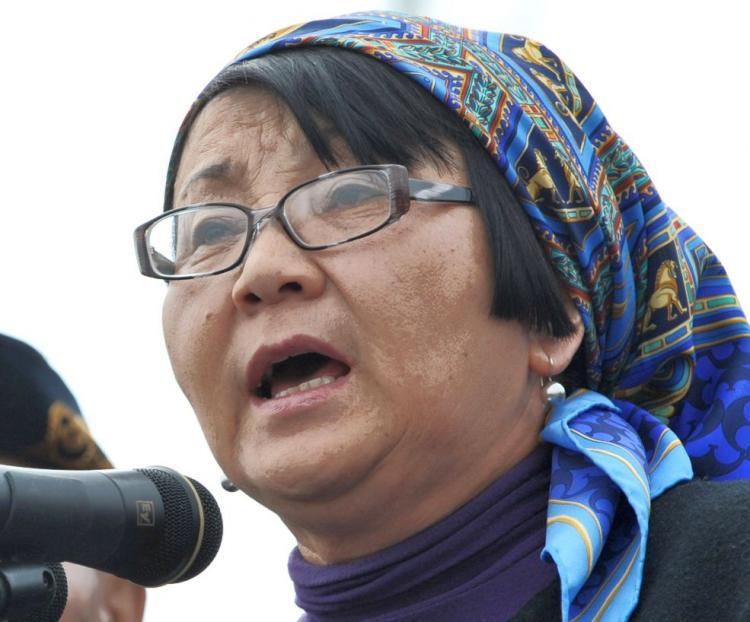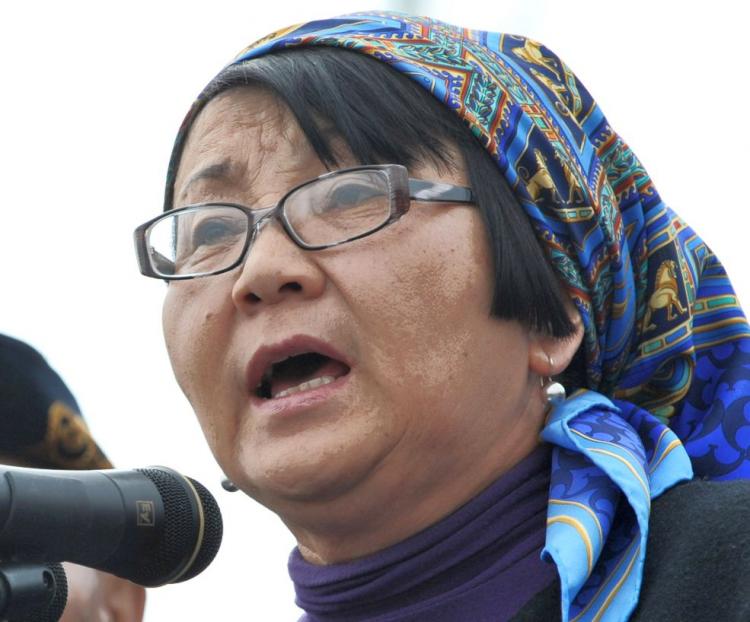Support for Kyrgyzstan Grows, but Nation Still Unstable
Domestic situation remains uncertain, but the country’s relationships appear to be getting better.

Kyrgyz interim leader Roza Otunbayeva gives a speech during mass burials of the victims at the Ata-Beyit memorial complex on the outskirts of Bishkek on April 10. Some 7,000 people gathered in a sea of flowers at a cemetery on the edge of the capital for Saturday's mass burials, mourning 79 people who died in the uprising during which the government opened fire on protesters. Vyacheslav Oseledkooo/AFP/Getty Images
|Updated:





